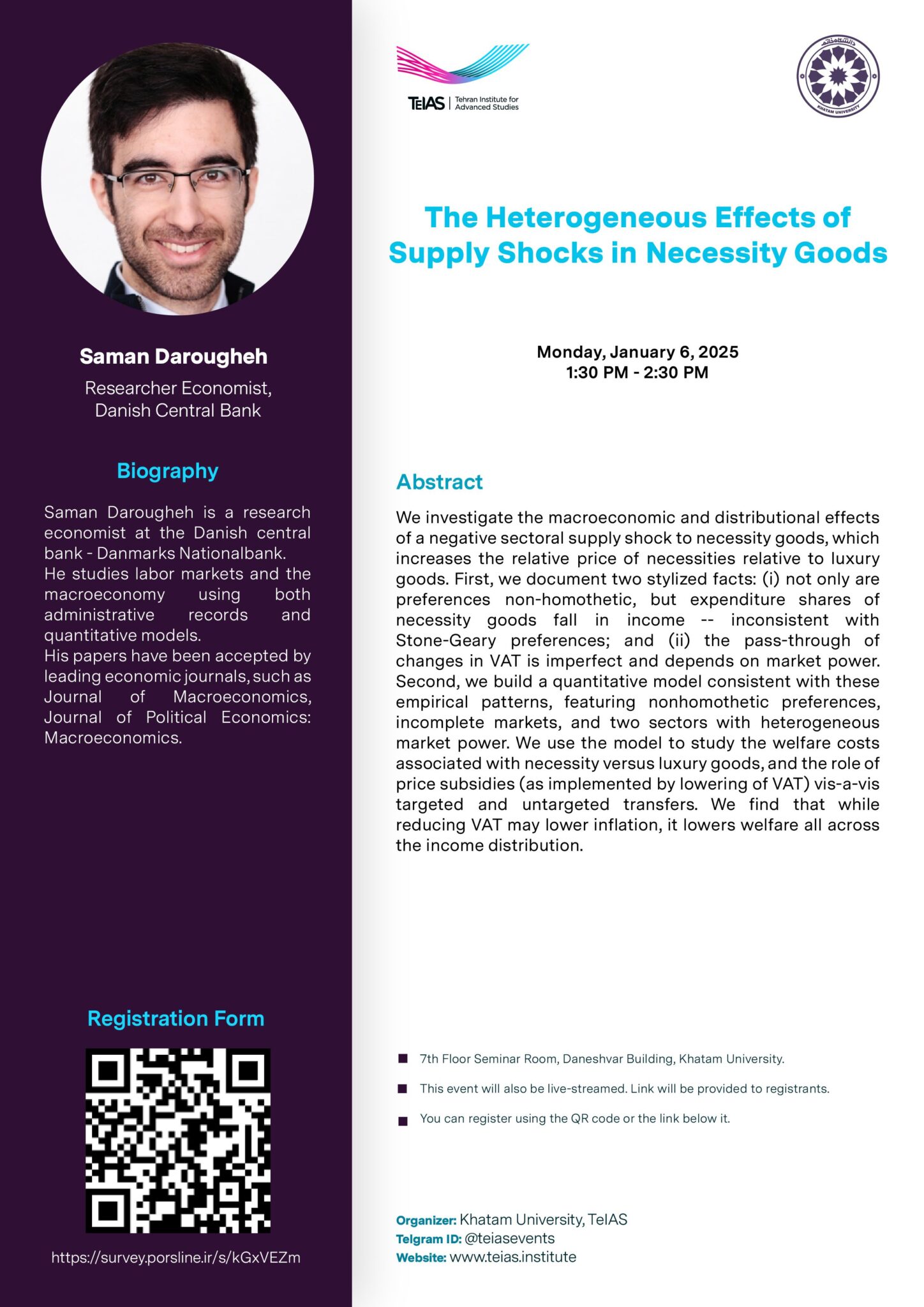
7th Floor Seminar Room, Daneshvar Building, .
This event will also be live-streamed. Link will be provided to registrants.
January 5, 2025
Saman Darougheh
Researcher Economist, Danish Central Bank
Overview
We investigate the macroeconomic and distributional effects of a negative sectoral supply shock to necessity goods, which increases the relative price of necessities relative to luxury goods. First, we document two stylized facts: (i) not only are preferences non-homothetic, but expenditure shares of necessity goods fall in income — inconsistent with Stone-Geary preferences; and (ii) the pass-through of changes in VAT is imperfect and depends on market power. Second, we build a quantitative model consistent with these empirical patterns, featuring nonhomothetic preferences, incomplete markets, and two sectors with heterogeneous market power. We use the model to study the welfare costs associated with necessity versus luxury goods, and the role of price subsidies (as implemented by lowering of VAT) vis-a-vis targeted and untargeted transfers. We find that while reducing VAT may lower inflation, it lowers welfare all across the income distribution.
Biography

Saman Darougheh is a research economist at the Danish central bank – Danmarks Nationalbank. He studies labor markets and the macroeconomy using both administrative records and quantitative models. His papers have been accepted by leading economic journals, such as Journal of Macroeconomics, Journal of Political Economics: Macroeconomics.
